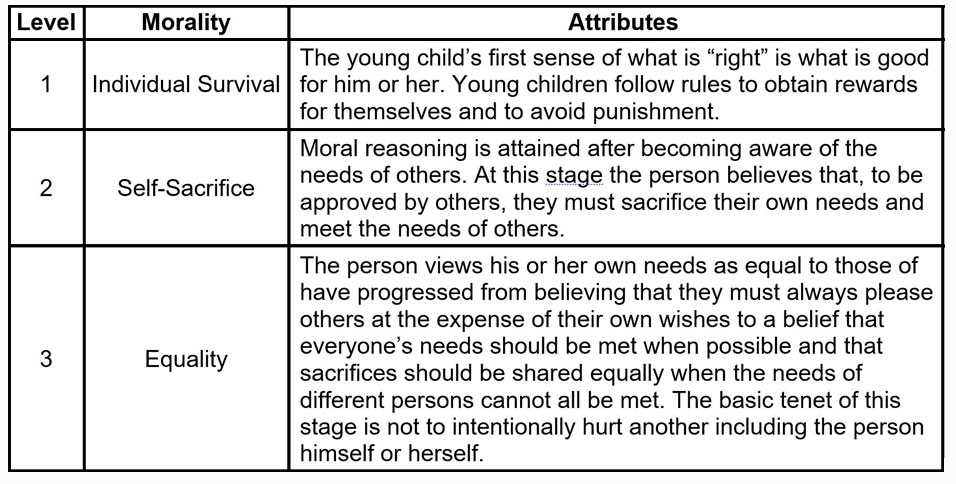The Stages of Moral Development
Lawrence Kohlberg (1927-1987) proposed the first complete theory of moral development (1969). In 1982 Carol Gilligan provided an important alternative theory (Gilligan was a student of Kohlberg at Harvard University). Kohlberg theory is based on a series of moral dilemmas given to subjects (eg, steal lifesaving expensive drug to save your wife). Reasoning for one’s decision triumphs over "right or wrong". Carol Gilligan is an American feminist, ethicist, and psychologist, known for her book “In a Different Voice” (1982). Her criticism of Lawrence Kohlberg's stages of moral development revolutionized moral psychology and rendered Kohlberg's work obsolete. Because Kohlberg and others used mostly boys in their initial studies, Gilligan argued that their ‘bias’ did not consider that female children pass through somewhat different stages and that the Kohlberg model inaccurately described the moral development in girls. Whereas male development begins with self-interest and moves toward greater reliance on abstract principles of justice, preserving independence and negotiating and maintaining status in a hierarchical social order (agency), females progress from self-interest toward a balanced concern for the welfare of self and others, establishing connections and negotiating relationships (communion).
Gilligan’s ethics of care have been criticized by other feminist scholars such as Jaclyn Friedman, who argues that the different ethics of women and men are in fact a result of societal expectations. Since we expect women and men to think differently about ethics women and men as a result do present differences. The different modes of reasoning are therefore a socially constructed dichotomy simply reproducing itself through our expectations of how women and men act. Some see this criticism as demonstrative of Friedman's lack of understanding of Gilligan's work, since Gilligan explicitly notes that the ethical systems of men and women are often contingent on societal expectations. z
|


